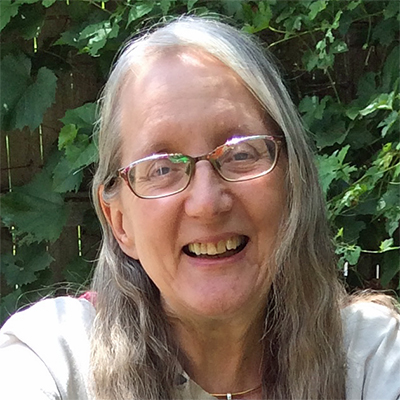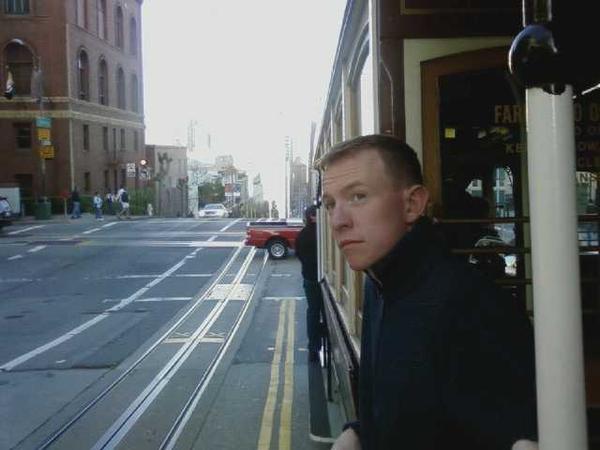War Poetry Contest 2010
Congratulations to the winners of our 2010 poetry contest on the theme of war!
Honorable Mention $100
- J. David Cummings, A-bomb Dome, Tancho, I Have Begun the Folding of Cranes
- Charles Elliott, Col. Gabriel
- Matthew Finlay, Scarlet Seconds After the Last March
- Starkey Flythe, Uncle Sam Wants You
- Susan Gubernat, Trojan Women
- Jason Kappel, Oblivion
- Jennifer Morales, Cross Reference
- Aliene Pylant, Refugees
- Johnmichael Simon, Casualties
- Nishan Swais, We Like War Better When It’s Wearing Lipstick
- Peter Taylor, Antietam
- Stephen Scott Whitaker, The Success of Captain Whitaker’s Dress, Until the Piano Can No Longer Hold Its Tune, Typewriter
Finalists
- David Arnett, On Patrol
- Kareem Carter, A Thug to Soldier’s Story
- Elizabeth F. Cleary, After Afghanistan
- Boman Desai, The Bright White Sky
- Robin Coste Lewis, From: / To:, The Previous Sea, Beauty’s Nest
- Radha Marcum, News, Fire Balloons (1944), In the Making
- Jenny Overman, Dead Sea
- Vivian Faith Prescott, Last Days of War, Shrapnel, Rite of Passage
- Emily Ruch, The Requiem of Flight
- John Spaulding, War, Un Soir Après la Guerre, Lucky Strike Went to War
Thanks to everyone who entered our ninth annual War Poetry Contest. We received 656 entries of 1-3 poems each. Our contest began in the wake of the September 11, 2001 tragedy, and much of the winning work from our early years emerged out of a struggle for words to understand the shattering of our premillennial complacency. Now, after several years of low-grade wars whose purpose has become as murky as their termination point, our poets are turning their attention to violence's aftermath—those visible and invisible casualties that remain long after official victory is declared.
The Judging
This year, our two judges reversed roles. Winning Writers Editor Jendi Reiter read every submission first, generating a shortlist of about 75 entries after three rounds of elimination. Jendi and Assistant Judge Ellen LaFleche shared several lively discussions about the shortlist, reading our top picks aloud to identify strengths and weaknesses in the poems' music and pacing. When it comes to targeting cliches, Ellen shoots "expert".
Our demand for originality extended beyond particular words and phrases. We have read thousands of war poems that could have been describing the same stock footage. Give us a fresh voice, like young Wil, the simple-minded Confederate soldier who narrates Peter Taylor's dialect poem "Antietam", or the otherworldly speaker of "Scarlet Seconds After the Last March", presiding over Armageddon with bloodthirsty glee. Is he God or the devil, or a crazed backwoods preacher for whom they are one and the same? We weren't sure, but we got chills.
War poets face the challenge of making a well-known event seem fresh. One technique is to create memorable characters whose unfamiliar perspective is in tension with their expected surroundings. Charles Elliott's "Col. Gabriel", for instance, has used the skills from his closeted existence to become the perfect Secret Service man—emotionless, invisible, with nothing to lose. Susan Gubernat's "Trojan Women" are college students acting, somewhat ineptly and with petty rivalries, in Euripides' play by that name, while the Vietnam War breaks into their cloistered world. The African-American soldiers in Robin Coste Lewis' poems of World War II find more freedom in the war zones of Europe than in their segregated homeland after they've won. We were especially impressed by the range of topics this year, from poetry about the Native Alaskan experience, to the art of folding paper cranes, to women's domestic isolation on the homefront.
The Winners
Poems of epic scope have ruled our winners' circle in recent years, but this year we gave top honors to three writers who were able to sum up the intense, contradictory experiences of war—its erotic charge, anger, grief, camaraderie and dark humor—in the space of a single page.
Gerardo Mena's first-prize poem "So I Was a Coffin" personifies objects from the battlefield—flags, weapons, bandages—as metaphors for dutiful and doomed men. An instrument in the hands of others, the soldier does his best at an impossible mission and takes the blame for its failure. Mena's measured, elegiac lines combine a solemn respect for his comrades' sacrifice with quiet outrage at the exploitation of their naivete.
Mena is a decorated Iraqi Freedom Veteran who served in Special Operations with the Reconnaissance Marines for six years before returning to America to finish his higher education. We were honored to discover that this is his first poetry publication, and sure that it won't be his last.
Bruce Lack's second-prize poems "FNG", "Get Some", and "Hadji" give us a raw, uncensored look at how combat breaks down and reshapes one's identity. ("FNG" is military slang for "[expletive] new guy".) From the first day of training, the new recruits are bluntly ordered to accept the abnormal as normal. Back home, the reverse occurs, as the veteran struggles to navigate ordinary life with a personality transformed by rage, guilt, adrenalin surges, and boredom with peacetime's banal chores.
Anna Scotti's third-prize poem "This Is How I'll Tell It When I Tell It to Our Children" takes a novel and effective approach to depicting atrocities against civilians. The poem rewrites each violent gesture as something beautiful and innocent, a trauma-erasing strategy that is heartbreaking because the truth of the scene always bleeds through the lovely fable. By showing us what humanity could be, she moves us to lament what we are.
Sending work to a writing contest is an act of courage and risk. We both know from personal experience how scary it can be to send a piece of writing to be judged and ranked. We thank each and every entrant for their courage, their commitment to writing, and their willingness to tackle a painful subject. Whether or not a particular poem won a prize in this year's contest, the act of writing the poem was itself an act of courage and resistance against the destructive force of war.
Contest Judges

Jendi Reiter
Jendi Reiter is vice president of Winning Writers, editor of The Best Free Literary Contests, and oversees the Winning Writers literary contests. Jendi is the author of the novel Origin Story (Saddle Road Press, 2024), the short story collection An Incomplete List of My Wishes (Sunshot Press, 2018), the novel Two Natures (Saddle Road Press, 2016), the poetry collections Made Man (Little Red Tree Publishing, 2022), Bullies in Love (Little Red Tree Publishing, 2015), and A Talent for Sadness (Turning Point Books, 2003), and the award-winning poetry chapbooks Swallow (Amsterdam Press, 2009) and Barbie at 50 (Cervena Barva Press, 2010). Awards include a Massachusetts Cultural Council Artists' Grant for Poetry, the 2016 New Letters Prize for Fiction, the 2016 Rainbow Award for Best Gay Contemporary Fiction, the 2015 Wag's Revue Poetry Prize, the 2013 Little Red Tree International Poetry Prize, the 2012 Betsy Colquitt Award for Poetry from Descant magazine, the 2011 James Knudsen Editor's Prize in Fiction from Bayou Magazine, the 2011 OSA Enizagam Award for Fiction, the 2010 Anderbo Poetry Prize, and second prize in the 2010 Iowa Review Awards for Fiction. Jendi's work has appeared in Poetry, The New Criterion, Mudfish, Passages North, Cutthroat, Best American Poetry 1990, and many other publications. See their interviews in RoundPier and Lammergeier.
Photo by Ezra Autumn Wilde
Contest Judges

Ellen LaFleche
Ellen LaFleche is a past judge of our North Street Book Prize. She has worked as a journalist and women's health educator in Western Massachusetts. Her manuscript, Workers' Rites, won the Philbrick Poetry Award from the Providence Athenaeum and was published as a chapbook in 2011. Another chapbook, Ovarian, was published in 2011 by the Dallas Poets Community Press, and a third chapbook, Beatrice, about a semi-cloistered nun, was published in 2012 by Tiger's Eye Press. Her poems have been published in Spoon River Poetry Review, Hunger Mountain, New Millennium Writings, The Ledge, Alligator Juniper, Many Mountains Moving, Harpur Palate, Southeast Review, and Naugatuck River Review, among many others. Prose credits include her 2014 Daily Hampshire Gazette article "Taken too soon, at 65: My husband John Clobridge's final days with ALS". She also reviews books for Wordgathering, the online journal of disability poetics. She has won the Ruth Stone Poetry Prize, the New Millennium Poetry Prize (shared with Jim Glenn Thatcher), the DASH Poetry Journal Prize, the Poets on Parnassus Prize for poetry about the medical experience, second prize in The Ledge Poetry Awards, and the Editor's Choice Award for Poetry from Writecorner Press.










